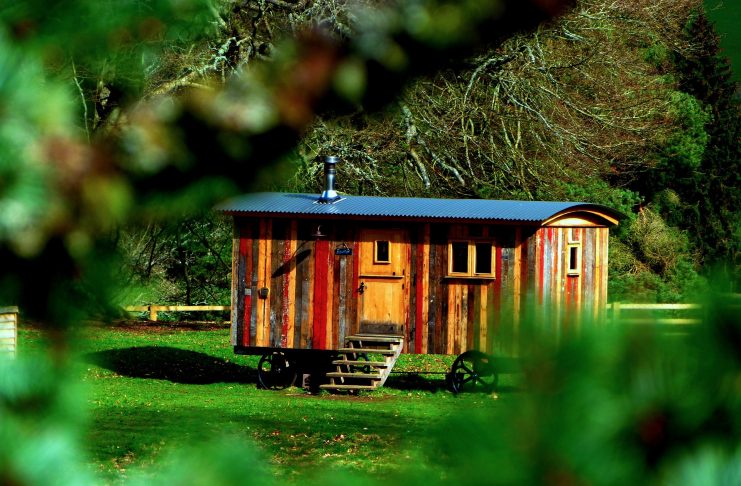One of my favorite pastimes is thinking about how cryptocurrency and blockchain technology can change the world. I’m also very interested in the world of minimalism and sustainable lifestyles. In fact, I tend to think about building a micro-home/tiny house in the future. Though I’m not the first to connect the two, I realize that cryptocurrency and blockchain technology may be very useful to integrate into the tiny house movement. Let’s explore this a bit further.
Tiny Homes and Crypto Seem Like an Obvious Match
Tiny homes generally try to be as ecologically friendly and sustainable as possible. I admire this, and some in the movement have even started to think about how heat from cryptocurrency mining and blockchain security tasks could actually be reused within these tiny homes. This is a concept I enjoy immensely – capturing and repurposing the byproduct of one productive task for another.
The heat could easily be reused as a means to heat one’s home during the winter and other cold parts of the year. I’m not the first to think of this, but it’s an idea worthy of as much exploration as possible. For those living in colder climates, it would be an excellent way to introduce outside air (via an air filter), warm it up, and keep the whole place from getting too stuffy.
It could also easily help with any water heating units in the house, and it isn’t too far off from my mining assisted brew operation. This would be a useful redirect once it was too warm to really heat the home. There are also interesting devices that could convert thermal energy back into electricity, at an obvious net loss, but better than wholly wasted.
Of course, one potential limiting factor for this would be the home’s power source. Most of these homes have solar and/or wind generators. Alone, these would likely be unable to generate the power necessary to maintain a mining operation, and would most likely barely keep the batteries for heat and hot water charged. However, if it only used those in-house resources as a supplement/cost reduction while still attached to the grid, this could be doable.
Outside of mining, the parts for these homes often need to be incredibly high-quality due to the level of sophistication. Blockchain technology could help with the supply chain and logistics of building and shipping these homes. For example, solar panels are somewhat expensive if you want the best possible ones to help generate enough electricity for your tiny home, so ensuring that they are 1) authentic and 2) undamaged are top priorities. We all know that supply chain and provenance are one of blockchain technology’s fortes.
Finally, there’s an ideological alignment here – at least, as far as I can see. Tiny homes do a few things. They are cheaper, generally, since they have less square feet and amenities than needlessly large homes. A lower cost of acquisition means either a lower or no mortgage – freedom from banks. Zoning laws in many cities also require owners of tiny homes to make them “mobile”, so it is not uncommon to see plots of land with many tiny homes that are able to be moved (i.e., independence within a community through the creation of a network). These homes try to be self-sustaining as well, with unnecessary things reduced or removed and multiple things serving multiple functions in addition to renewable resource generators. It’s all about self-reliance and taking back control over one’s life as best as possible.
Do you have a tiny home? Are you thinking about one? Do you or would you integrate cryptocurrency and blockchain technology into your literal living situation? Let us know on Twitter and in the comments below!
Image(s): Shutterstock.com




